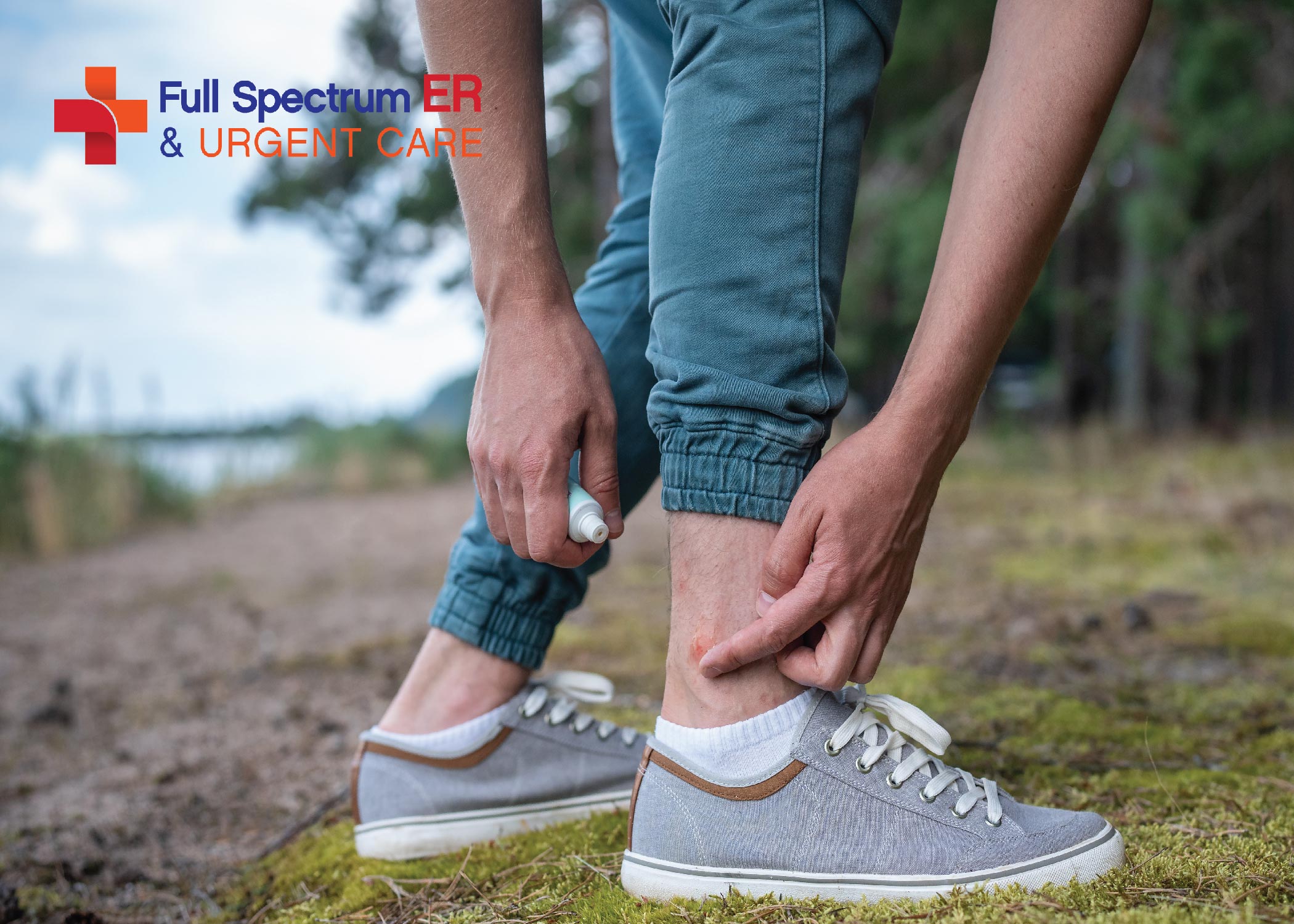
Mosquito Bites & Repellant
What are mosquito bites?
Mosquito bites are small, raised bumps on the skin resulting from a female mosquito feeding on human blood.
When a mosquito bites, it uses its mouthpart (called a proboscis) to pierce the skin and draw blood. While feeding, the mosquito also injects saliva into your skin. Your body reacts to the saliva, causing a circular bump and itching.
Mosquito bites usually don't result in long-term harm, causing only temporary irritation. However, mosquitoes are dangerous because they transmit diseases that can be deadly.
Why do mosquito bites itch?
When a mosquito releases saliva into your bloodstream, your body treats it as an allergen. In response, your immune system sends histamine to the affected area to help remove the allergen. It's this histamine that causes the itching and swelling associated with mosquito bites. Most people have a mild allergic reaction to mosquito bites.
How do mosquitoes spread disease?
Mosquitoes transmit diseases through their bites, acting as vectors—organisms that carry diseases between animals and humans. Vectors often spread infections through blood. Many bloodsucking creatures, like mosquitoes, ticks, fleas, and sandflies, are classified as vectors.
When a mosquito bites, it not only takes blood but also releases its saliva into your bloodstream. If the mosquito is infected, it can spread the disease when it bites. Mosquitoes often feed by taking small amounts of blood from multiple sources, which increases the chances of spreading infection to more people.
What types of diseases can be spread by mosquito bites?
Chikungunya: Found in Africa, North and South America, Asia, Europe and the Indian subcontinent, chikungunya is a virus transmitted by the Aedes aegypti mosquito. Symptoms of this virus include fever, joint and muscle pain, headache, nausea, tiredness and a rash.
Zika: Found in Africa, North and South America, Asia and the Pacific region, Zika is a virus transmitted by the Aedes aegypti and Aedes albopictus mosquito. Once a person is infected, the virus can be transmitted from person to person through sex. Zika symptoms include a mild fever, headache, joint and muscle pain, a skin rash and irritated eyes. If a pregnant woman is infected with Zika, the virus can impact the developing fetus.
Dengue: Found in Africa, North and South America, Asia and Europe, dengue is a virus transmitted by the Aedes aegypti mosquito. The symptoms of dengue are similar to the flu. Other symptoms include fever, headache, joint and muscle pain and nausea.
West Nile virus: Found in Africa, North America, West Asia, Europe and the Middle East, West Nile virus is transmitted by the Culex mosquito. West Nile virus can be fatal. Symptoms of the most severe version of the virus can include headache, fever, a stiff neck, confusion, coma, convulsions and weakness of the muscles.
Malaria: Found in sub-Saharan Africa, malaria is a virus transmitted by the anopheles mosquito. Symptoms of malaria can include fever, headache and vomiting. Malaria can be fatal.
Yellow fever: Found in Africa and Latin America, yellow fever is a virus transmitted by the Aedes aegypti mosquito. Symptoms of yellow fever can include fever, headache, muscle and back pain, lack of appetite and vomiting. Yellow fever can be fatal.
How are mosquito bites treated?
Mosquito bites usually don’t require treatment. Creams for mosquito bites can help soothe itching and discomfort. However, if you experience more serious symptoms after a bite, like an allergic reaction, fever, headache, or body aches, it's important to see a healthcare provider. You should also consult a doctor if you've recently traveled to areas where mosquito-borne infections are common. The type of treatment you receive will depend on the severity of the infection.
How do I stop mosquito bites from itching?
Avoid scratching mosquito bites, as it can break your skin and increase the risk of infection. If you accidentally scratch and break the skin, clean the area with soap and water, and cover it with a bandage. If the bite becomes infected, consult your healthcare provider.
Mosquito bites only last a few days, however, there are many over-the-counter products that can stop mosquito bites from itching.
Antihistamines: Antihistamines are a popular mosquito bite treatment. Histamine is a chemical created by your immune system. Your body releases histamine after it encounters an allergen. Histamine is what makes mosquito bites itch. You can take an antihistamine as a pill, or you can apply it directly to your mosquito bite as a cream or ointment.
Hydrocortisone: Hydrocortisone is a corticosteroid that also contains an anesthetic to help relieve itching and swelling. You can apply it directly to your mosquito bite in the form of a cream or ointment.
Ice: Ice can slow down the amount of blood that flows to an area. It reduces inflammation, pain, swelling, and itchiness. Apply an ice pack covered in a light towel over the area for a few minutes at a time for mosquito bite relief.
Aloe vera: Aloe vera is a succulent plant. The gel in its leaves contains salicylic acid, which relieves itching and pain. You can apply aloe gel directly to your mosquito bite.
Home remedies: There are many home remedies for mosquito bites circulating online, but if you find one you'd like to try, it's important to consult with your healthcare provider first.
How do I prevent mosquito bites?
You can prevent mosquito bites in several ways which include:
Eliminating any standing water can help prevent mosquito breeding.
Avoiding travel to areas with mosquito-borne infections can help reduce your risk of exposure to diseases.
Wearing a bug spray registered with the Environmental Protection Agency (typically containing DEET).
Wear thick clothes, including long pants and long sleeves as mosquitoes can bite through thin clothes when working outdoors.
Utilize screens over windows and doors.
Stay indoors during the highest point of mosquito activity (dusk and dawn).
Treating clothing, tents, and net coverings with chemicals that repel mosquitoes.
Sleeping under protective netting.

